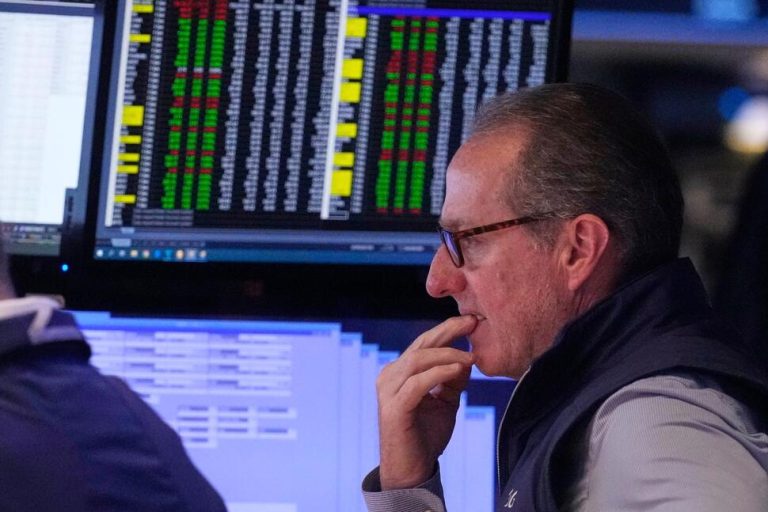Asian Markets Drop, Oil Prices Surge After Israeli Strike on Iran
HONG KONG (AP) — Asian markets fell early Friday while oil prices jumped sharply after Israel launched an airstrike on Tehran, escalating tensions surrounding Iran’s advancing nuclear program.
U.S. benchmark crude climbed $5.60, or 8.2%, to $73.61 a barrel. Brent crude, the international standard, rose $5.52 to $74.88.
In equities trading, Tokyo’s Nikkei 225 dropped 1.2% to 37,721.63, and South Korea’s Kospi slipped 0.7% to 2,900.14. Hong Kong’s Hang Seng Index lost 0.4% to 23,929.62, while the Shanghai Composite fell 0.2% to 3,394.52. Australia’s S&P/ASX 200 edged 0.3% lower to 8,540.80.
“While an Israeli strike on Iran is one of our top 10 global risk scenarios, we expect Asian markets to recover relatively quickly due to their limited exposure and stronger economic ties with Saudi Arabia and the UAE,” said Xu Tiachen of The Economist Intelligence Unit.
Back in the U.S., markets gained ground Thursday following encouraging inflation data. The S&P 500 rose 0.4% to 6,045.26, the Dow Jones Industrial Average added 0.2% to 42,967.62, and the Nasdaq climbed 0.2% to 19,662.48.
Tech giant Oracle surged 13.3% after reporting better-than-expected quarterly results. CEO Safra Catz projected strong revenue growth for the coming fiscal year, boosting investor confidence.
However, Boeing shares fell 4.8% after a London-bound Air India flight crashed shortly after takeoff from Ahmedabad, killing all 242 passengers and crew on board. The Boeing 787 Dreamliner reportedly went down in a residential area just minutes after takeoff. The cause of the crash is still under investigation.
Despite the tragic news, broader markets found support from a drop in Treasury yields, spurred by soft inflation data. A government report showed wholesale inflation rose less than expected in the past month, following a similar consumer inflation report a day earlier. Investors viewed this as a signal that the Federal Reserve may soon have room to cut interest rates.
The yield on the 10-year Treasury note fell to 4.35% from 4.41% on Wednesday and is down from 4.80% earlier this year.
Another report showed jobless claims rose slightly, with applications for unemployment benefits reaching an eight-month high. This may suggest an uptick in layoffs.
“If it weren’t for the lingering uncertainty caused by tariffs, the combined inflation and labor data would likely have pushed the Fed to resume rate cuts already,” said Thierry Wizman, a strategist at Macquarie.
The Fed is scheduled to meet next week, though markets widely expect it to hold rates steady. Current futures pricing suggests the first rate cut could come in September, according to CME Group data.
Tariffs imposed under President Donald Trump continue to inject volatility into markets. Although many remain on pause for negotiations, Trump’s recent comments have renewed investor anxiety. On Wednesday, he hinted the U.S. might issue ultimatums to trading partners: “This is the deal. You can take it or leave it.”
Elsewhere, Chime Financial soared 37.4% in its Nasdaq debut, positioning itself as a digital finance hub for consumers through partnerships with banks. GameStop, meanwhile, plummeted 22.5% after announcing plans to raise $1.75 billion through zero-interest debt that could be repaid in company stock.
In currency markets Friday, the U.S. dollar slipped to 143.10 Japanese yen from 143.46, while the euro inched down to $1.1552 from $1.1590.

